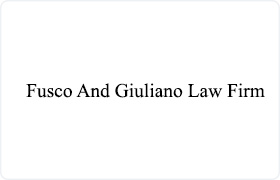 South Windsor RICO Act Lawyers, Connecticut
South Windsor RICO Act Lawyers, Connecticut
Sponsored Law Firm
-
 x
x

Click For More Info:
-
Fusco And Giuliano Law Firm
39 Russ Street Hartford, CT 06106» view mapCriminal Defense Law Working Relentlessly For You
Fusco And Giuliano Law Firm serves clients in Hartford, CT and the surrounding areas.
800-731-1370
Not enough matches for South Windsor RICO Act lawyer.
Below are all South Windsor Criminal lawyers.
Sponsored Lawyers
1-10 of 11 matches
Criminal, Misdemeanor, Felony, DUI-DWI, Motor Vehicle
Attorney John F. O’Brien has over 30 years of experience as a criminal defense lawyer. We’ve been protecting people’s rights in Hartford, CT since 1986. We have offices conveniently located across from the Manchester and Rockville courthouses. However, we service a number of courthouses, including but not limited to, Bristol, Enfield, Hartford, Manchester, New Britain, and Rockville. We also do jail and home visits. If you’re in need of a criminal defense lawyer, DUI attorney, trial lawyer or personal injury lawyer, give us a call today. We’d be happy to discuss your case with you. We handle your legal emergencies 24 hours a day, seven days a week. If you or your loved one is arrested for a DUI or needs a criminal defense attorney, we can help. Call us today and get the representation you need and deserve. We will fight for your rights. If you’re in need of a criminal defense lawyer, DUI attorney or a trial lawyer, don’t hesitate to give us a call. We’ve been protecting people’s rights in Hartford, CT since 1986, and we’d be happy to discuss your case with you. We also handle personal injury cases. John F. O’Brien promises you straight answers you can understand, practical advice you can follow, honest fees you can afford, and aggressive representation you can count on.
(more)Criminal, Accident & Injury, Estate
Ryan P. Barry received his B.A., with honors, from the University of Connecticut and his J.D. from the University of Connecticut School of Law. During law school, Attorney Barry worked as a Judicial Extern for United States District Court Judge Dominic J. Squatrito. He was also selected to membership on The Connecticut Law Review and is the author of "ERISA's Purpose: The Conveyance of Information from Trustee to Beneficiary," 31 Conn. L. Rev. 735 (1999). Attorney Barry is admitted to practice law in the State of Connecticut, the United States District Court for the District of Connecticut and the U.S. Court of Appeals for the 2nd Circuit. He is a member of the Connecticut Bar Association, the Manchester Bar Association, the American Bar Association, the American Association for Justice, the Connecticut Criminal Defense Lawyers Association, and the Connecticut Association of Municipal Attorneys. In July 2018, Attorney Barry was appointed by the judges of the Superior Court to serve for a 3-year term on the Statewide Grievance Committee. Attorney Barry is also a Life Fellow of the Connecticut Bar Foundation, membership for which is by invitation only, and is evidence of professional distinction. He has been named to Connecticut Super Lawyers List since 2020 for his work in personal injury.
(more)Accident & Injury, Criminal, Personal Injury, Animal Bite, Car Accident
Mr. Adler received a B.S. Degree in Business Administration from the University of Connecticut where he graduated Magna Cum Laude and was awarded Special Distinction in Business. Mr. Adler was also awarded scholarship memberships in Phi Kappa Phi and Beta Gamma Sigma Phi, a National Professional Business Fraternity. Prior to entering law school, Mr. Adler, who graduated from college 6 months early, worked as an Alternate Funding Analyst for Aetna Life and Casualty in Hartford, Connecticut. Mr. Adler attended Western New England College of Law and graduated Cum Laude, and thereafter entered private practice. Mr. Adler’s practice is concentrated in the areas of civil litigation including personal injury; wrongful death; premises liability; all insurance and coverage matters; product liability; cases involving every form of motor vehicle and boat; and business and commercial matters. Mr. Adler regularly and successfully tries the cases in State and Federal courthouses throughout the State of Connecticut. Attorney Adler serves as a member of the “Counsel on Litigation Management” and the law firm is recommended counsel by “A.M. Best” rated insurance attorneys. In addition to a wide range of community and charitable activities, Mr. Adler is on the Board of Advisors of the University Of Connecticut School Of Business.
(more)Criminal, Accident & Injury, DUI-DWI, Car Accident, Personal Injury
With over four and a half decades of practicing law, Attorney Brian J. Woolf, Esq. brings a wealth of legal knowledge and vast experience to his practice, having advocated for countless defendants in criminal proceedings and assisted many individuals in securing compensation for significant and life-altering injuries. Brian offers comprehensive legal services across a broad spectrum of areas including criminal defense matters. Born in Johannesburg, South Africa, Brian moved on to complete his undergraduate studies at the Hebrew University of Jerusalem, Israel, in 1972. He then furthered his education at the University of Pennsylvania, earning a master's degree in 1974, and achieved his law degree with honors from the University of Connecticut School of Law in 1977. Throughout his distinguished career, Attorney Woolf has been acknowledged for his professionalism and dedication to the field of law. His accolades include being named a Top Attorney in North America and receiving the Outstanding Service to the Criminal Defense Bar Award from the Connecticut Criminal Defense Lawyers Association. He actively participates in several key legal organizations, such as the National Association of Criminal Defense Lawyers and the Connecticut Bar Association. Attorney Woolf's dedication to both the legal field and his clients is reflected in his continued commitment to justice and excellence in every aspect of his career and community contributions.
(more)


 Carmine Giuliano Hartford, CT
Carmine Giuliano Hartford, CT AboutFusco And Giuliano Law Firm
AboutFusco And Giuliano Law Firm Practice AreasExpertise
Practice AreasExpertise




